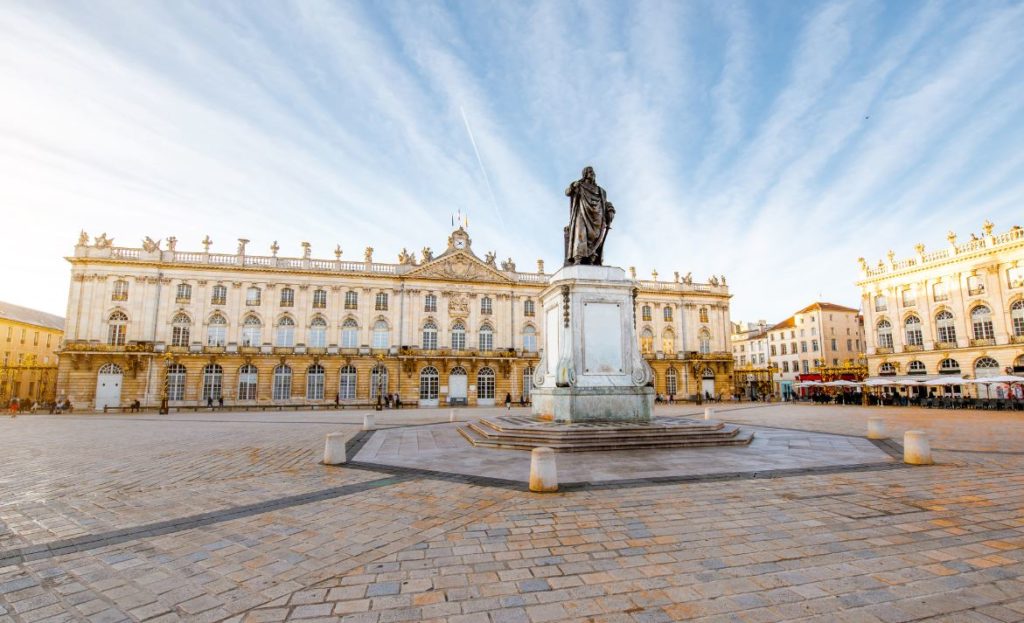Informations pour les doctorants

You are about to become a PhD student at Loria, but you still have questions about administrative procedures, housing, visa, bank, insurance and your daily life in France or Nancy? Find here all the practical information to prepare your arrival.
You can also:
- consult the Campus France Guide about Nancy, available
- consult the PhD Student Guide of the Lorraine University
- register to FEEL, the all-in-one platform to manage the different procedures related to your mobility (you can ask for your connection code at: drv-mdd-byside-contact@univ-lorraine.fr).

1. Before you leave
The prospect of moving to Europe can be overwhelming for some. Discover the conditions facilitating your move, and lots of useful information about your stay on the Euraxess website.
Find out about all the free services EURAXESS provides to researchers and employers.
You can save time and money by using more than 43 EURAXESS Centres spread across the French territory to help you with a range of issues including visa requirements, work regulations, taxation and social security.
The University of Lorraine’s doctoral studies system is composed of the Collège Lorrain des Ecoles Doctorales (CLED – Lorraine College Board for Doctoral Studies), which brings together representatives of the Doctoral Schools, along with the Division of Doctoral Studies (Research Department) which covers all operational tasks and projects common to Doctoral Schools.
More about the doctoral system on the Doctoral website of the Université de Lorraine
All the answers to your questions about doing a Doctorate in France: duration, content, admission requirements, how it works, legal and administrative framework, etc.
See the Campus France FAQ
Funding must often be found before enrolling in a Doctorate. Depending on your situation, your host establishment, your country of origin, a company or the European Union may finance your research project.
Most institutions such as prefectures will require a translation of your official documents (birth certificate, marriage certificate, etc.).
See the list of certified translators on

2. Your visa
All foreign nationals wishing to enter France must be able to submit statutory documents at the border concerning the reasons for their stay, their means of support and accommodation arrangements. A visa is generally required, in the absence of a waiver. For general information and for preparing, submitting and tracking your visa application, log on to France-Visas, France’s official visa site. France-Visas is a single portal with all the information you need to guide you through the process and help you every step of the way (preparing the application, entering details, submitting and tracking the application).
More information about visas on France Diplomatie
Entry conditions & Visas : information on Euraxess
One of the missions of the Association Nationale des Docteurs (ANDès, National Association of PhD holders) is to promote the recruitment of PhD/Doctorate holders, and they just issued the “Passeport Docteur” (PhD Passport). It’s a guide to use after passing a PhD/Doctorate including practical factsheets divided in three categories (Career, Orientation, Tools).
Information about visas for PhD students and scientists

3. Money
Preparing your budget
Food, healthcare, transportation, entertainment… the cost of living in France can be fairly high, especially in Paris and the big cities. It’s better to prepare your budget to avoid unpleasant surprises when you move here.
- Different types of taxes : welcome.univ-lorraine.fr/taxes-in-france
- Official French tax website : www.impots.gouv.fr
- Housing guide for international researchers : welcome.univ-lorraine.fr/find-your-home-sweet-home

4. Housing
Looking for housing? Here are some useful links:
Find your home sweet home and your warranty: More information in the Welcome Guide: Pages 19 & page 35 (PDF)
If you are less than 30 years old, you can use the Visale service: visale.fr (French)
If you are more than 30 years old, you can use the Guarantee service: garantme.fr
- Locapass: actionlogement.fr (French)

5. Health
Most institutions such as prefectures will require a translation of your official documents (birth certificate, marriage certificate, etc.). Click to see the list of certified translators: traducteursdelest.asso.fr
Since 1959, the Cleiss (Centre of European and International Liaisons for Social Security) has been France’s single help-desk for international mobility and social security.
www.cleiss.fr
More information about the French healthcare systemin the Guide Welcome to France by the UL: Page 24 (PDF)
Will my medical expenses be covered while I am doing my Ph.D.?
If you have a work contract, doctoral fellowship, or another contract, you are automatically registered for general Social Security. Your employer pays your contributions for you. If you do not have a work contract and you are under 28 years of age, you must register for Student Social Security at the same time as you enroll at the university. It costs approximately 250 euros per year. If you do not have a work contract and you are over 28, you must take private health insurance, at your expense. On average, Social Security reimburses 70% of medical expenses. For better coverage, you can take out complementary health insurance. More information: FAQ, Doing my Ph.D. in France: https://www.campusfrance.org/en/FAQ-Doctorate-France-questions
A « mutuelle » is a nonprofit making health insurance company that provides insurance complementary to Social Security. These companies are often set up for a particular profession, for example, there is a “mutuelle” for students, for teachers, and so on.
Regardless of your employer, you have access to occupational health services to prevent work-related illnesses and accidents, carry out a medical examination on hiring, etc.
Here you will find the important information and contacts according to your employer’s jurisdiction.
Université de Lorraine
The Occupational Health Service is open to all staff of the University of Lorraine (permanent and non-permanent).
More information: welcome
Your contacts at the Université de Lorraine :
CNRS
The role of preventive medicine is to prevent any deterioration in health as a result of work. The prevention doctor does not exercise control medicine or medical care except in emergencies.
intranet.cnrs.fr (Centre-Est > Pour les agents > Médecine de prévention)
- Contact: Dr Danielle PELTIER (MPAR) – 03.83.53.95.53
- Secrétariat : 03.83.53.35.16 – Centre Médico-Social
9 rue Notre-Dame des Pauvres 54500 Vandoeuvre-lès-Nancy
Inria
The first responsibility of an employer is to protect the physical and mental health of his employees. Ensuring their safety and protecting their health is both a moral duty and a legal obligation.
intranet.inria.fr

6. Daily life at Loria
- PhD Weekend d’intégration: At the start of the academic year, doctoral students spend a weekend together to meet up and share moments of conviviality. The next integration weekend will take place from November 17 to 19 in a chalet near Gérardmer.
- Ph.D. Pizza Time: This is a seminar created by and for Loria doctoral students. A monthly get-together to discuss their research and other interesting topics over a few slides of pizza!
- PhD coffee time: This is a coffee break for PhD students to get to know each other in an informal and friendly setting. Coffee and pastries are provided by the laboratory.
- Cinéclub: From time to time, we invite you to discover a film during the lunch break.
- Board games evenings: Open to the entire lab. Every month or so a board game evening is organized in the Agora.
For more information, visit Loria’s intranet or contact our communication service.
- Colloquium Loria: The purpose of colloquium Loria is to highlight different computer science research topics in the form of a one-hour presentation by a renowned scientist, including a time of discussion. It is open to everyone and takes place every month.
7. Welcome to Nancy and Lorraine!

Nancy is a city with a rich cultural life and is characterized by its “Art Nouveau” architecture style. Close to Paris, the french capital is easily accessible from Nancy by train (aprox. 1h30 by TGV). The Lorraine region has beautiful landscapes: hiking lovers will enjoy the Vosges.
- Events, guided tours and more: www.nancy-tourisme.fr
- The Pass Lorraine free card, get discounts on museums, parks, etc.: www.tourism-lorraine.com

8. After your Ph.D.
- Return your appartment – Pages 53 to 56 (PDF)
- Post-doc: www.campusfrance.org/post-doc
- Summer school: www.campusfrance.org/summer-schools
- The status of visiting professor or researcher: www.campusfrance.org/status


